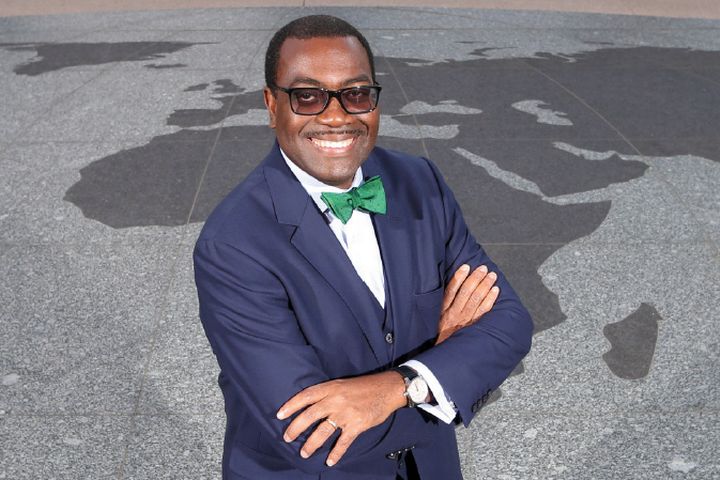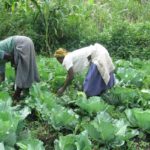By Dr. Akinwumi A. Adesina
Africa is where the focus of the world is right now as the growth and investment frontier. Just last week, I was in London for the UK-Africa Summit. There has been China-Africa Summit, Japan-Africa Summit, India-Africa Summit, Korea-Africa Summit, Russia-Africa Summit, US-Africa Summit and several others.
What do all these countries see? They see opportunities that Africa offers.
With a population of 1.2 billion people that is expected to rise to 2.5 billion by 2050, a rising middle class, rapid urbanization – and a labor work force that will rise from 705 million today to well over 1 billion in the next 10 years – Africa offers huge market and investment opportunities. The Africa Continental Free Trade Area makes Africa a market worth $3.3 trillion.
Africa can no longer be ignored. African economies are growing well, higher than the global average. Our African Economic Outlook estimates show that growth is projected to rise from 3.4 per cent in 2019 to 3.9 per cent in 2020 and 4.1 per cent in 2021. This aggregate growth rate masks highly diversified and resilient growth patterns. Indeed, 20 countries are projected this year to grow at 3-5 per cent, while 20 countries are projected to achieve growth rates of 5 per cent and above. That’s impressive!
Even more impressive is that 6 of the 10 fastest growing economies in the world are now in Africa: Rwanda (8.7 per cent), Cote d’Ivoire (7.4 per cent), Ethiopia (7.4 per cent), Ghana (7.1 per cent), Tanzania (6.8 per cent) and Benin (6.7 per cent).
Some regions are growing faster than others. East Africa is the fastest growing region with growth rate of 5 per cent in 2019, followed by North Africa (4.1 per cent), West Africa (3.7 per cent), Central Africa (3.2 per cent) and Southern Africa (0.7 per cent).
For the first time in more than one decade, growth in Africa is due largely to expansion of investments rather than consumption, as well as from exports.
Just think of the following: Foreign Direct Investment to Africa rose by 11 per cent in 2019, compared to just 4 per cent in Asia, while it declined by -13 per cent globally and by -23 per cent for developed economies.
However, Africa faces important economic headwinds that could affect future growth. Global trade tensions have weakened global trade volumes, whose growth rate declined from 5.7 per cent in 2017 to just 1.1 per cent in 2019.
Another challenge has been the impact of climate change, especially from the extreme weather patterns such as cyclones that devastated Mozambique, Malawi and Zimbabwe, as well as widespread drought across southern Africa and East Africa.
The African Development Bank provided $106 million to support Mozambique, Zimbabwe and Malawi in the immediate aftermath of the cyclones, in addition to other emergency support.
African countries cannot continue to reel from one emergency to another emergency. The African Development Bank has used its Africa Disaster Risk Insurance Facility to pay for insurance premiums for countries facing extreme weather events that have helped to provide $36 million in payout to countries. It is time now for the international community to help scale up this facility to reach many more countries.
We must also address issues of insecurity. Growth in West Africa, which improved as Nigeria’s economy recovered from recession, has been dampened by the rising insecurity challenges, especially in the Sahel. Several countries in West Africa, such as Niger, Mali, Burkina Faso and Chad are spending a very high share of their budgets on security.
It is now time for the African Development Bank, IMF and the World Bank to work out a financial support system that will help address these exogenous security shocks, which if left unaddressed, will have broader spillover effects that will lower growth and investment in the region. In this context, I wish to commend the ECOWAS Heads of State and Governments for their bold decision to set up a fund to help address these insecurity issues in the sub-region.
We must tackle rising debt levels. Total debt stock (external and domestic) currently stands at $500 billion. Median Debt to GDP has risen from 38 per cent in 2008 to 54 per cent in 2018. But there is no need for the panic button.
Let me be clear: Africa does not have a systemic debt crisis. However, we must watch the quality of debt, the mix of debt in terms of concessional and non-concessional, the potential negative effects of rising domestic debt in crowding out private sector access to finance, the increasing level of non-Paris Club bilateral debt, and rising volumes of Euro bonds.
While there is no cause for alarm, greater prudence is needed. We all must now collectively focus on sustainable debt management and greater reliance on domestic resource mobilization to finance rising fiscal deficits.
The bulk of the debt is actually spent on infrastructure, which remains a major challenge for many countries. Governments can improve the cost effectiveness of their expenditures on infrastructure by sharply focusing on quality infrastructure, improved efficiency of public expenditure on infrastructure, while promoting greater participation of private sector in the provision of infrastructure.
Physical infrastructure, while important, is not enough to drive much needed greater growth and productivity of African economies. African countries should accelerate investments as well in the development of human capital.
Youth unemployment must be given top priority. With 12 million graduates entering the labor market each year and only 3 million of them getting jobs, the mountain of youth unemployment is rising annually.
Given the fast pace of changes, driven by the 4th industrial revolution – from artificial intelligence, to robotics, machine learning, quantum computing – Africa must invest more in re-directing and re-skilling its labor force, and especially the youth, to effectively participate.
The youth must be prepared for the jobs of the future – not the jobs of the past.
Especially critical is training in science, technology, engineering and mathematics. The Bank is already working on this, with our support to build scientific centers of excellence, such as the African universities of science and technology – all part of the Mandela Institute of Science and Technology. We have invested in the Kigali Institute for Science and Technology that is providing world-class training in ICT at the Masters level in collaboration with the Carnegie Mellon University.
As part of our Jobs for Youth in Africa strategy, the Bank launched the establishment of Coding for Employment Program, designed to develop young digital entrepreneurs. We hope to develop 130 centers of innovation over the next five years to help create 9 million direct and indirect jobs. Our experience so far from ongoing programs in Rwanda, Nigeria, Kenya and Senegal has been impactful. Some 2,000 youth (46 per cent women) were trained in just three months, between March and June 2019.
Without any doubt, there is need to expand financing for education at all levels, primary, secondary and tertiary. The educational system must adequately prepare the youth for the labor market. Priority must be placed on improving access to vocational skills training, reducing the mismatch between training and needs of the labor market, and providing greater incentives for the private sector to support young people with on-the-job training opportunities, as well as entrepreneurship.
At the end of the day, it is not GDP growth that matters. Nobody eats GDP. Growth must be visible. Growth must be equitable. Growth must be felt in the lives of people. That is why the African Development Bank places particular emphasis on one of our High 5s: Improving the Quality of Life of the People of Africa.
We are a “People-focused Bank”. People are our core business; and their quality of life is our greatest return. It is the people of Africa who motivate us to keep doing what we do best: making prosperity a reality for all.
I hope that the findings of this African Economic Outlook will further challenge us that, while much has been achieved on growth, we still have ways to go to make that growth much higher, more equal and impactful in the lives of people, everyday.
And every single day we work, let’s look at the real lives behind the statistics. Let’s hear their voices. Let’s feel their aspirations. Let’s do a better job to make the dreams of improved quality of life for millions of Africans a reality.
Dr. Akinwumi A. Adesina, is the President, African Development Bank. The article is an abridged version of the speech he delivered at the launch of the African Economic Outlook on Thursday at the bank’s headquarters in Abidjan, Cote d’Ivoire








